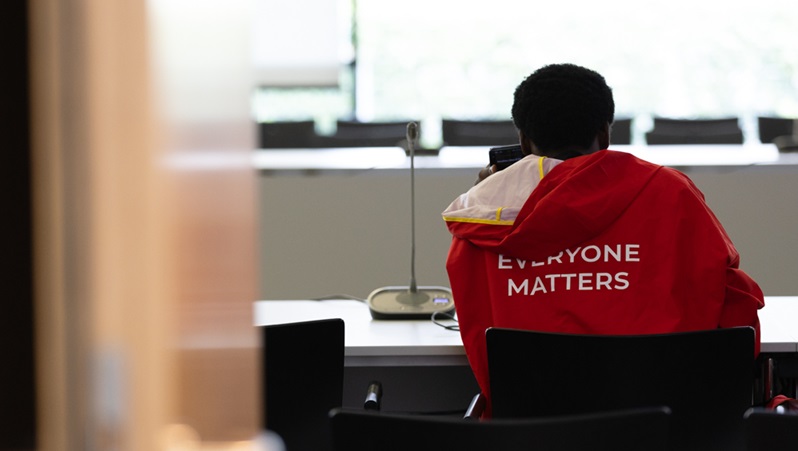Campaigners have accused the German foreign office of discrimination, after some African delegates were denied visas for Bonn climate talks
Climate campaigners have accused the German foreign ministry of “discriminatory treatment”, after dozens of delegates from Africa and Asia experienced trouble getting visas to attend the annual UN climate talks in the German city of Bonn.
In a letter to German foreign minister Annalena Baerbock, seen by Climate Home but not made public, several coalitions of climate activists say that visa barriers exclude many participants from the Global South from the “climate negotiations that will determine the future of their countries and communities”.
Ugandan campaigner Hamira Kobusingye from Fridays for Future Africa, one of those behind the letter, told Climate Home: “This is an example of systemic and climate racism, as most of the affected delegations were primarily from Africa and Asia. This issue is rooted in the lingering effects of colonialism.”
Government negotiators also sounded the alarm, collectively agreeing in formal conclusions at the talks that they “noted with concern the difficulties experienced by some delegates in obtaining visas to enable them to attend sessions” in Bonn and urging “timely issuance of visas”.
Bonn talks on climate finance goal end in stalemate on numbers
Delegates from Europe and most of the Americas do not need visas for short stays in Germany while those from Africa and most of Asia do.
The German Federal Foreign Office told Climate Home it was “important” to them that all accredited UN conference participants were able to attend.
A spokesperson said they were “in close contact with the UNFCCC Secretariat months before the conference, including on the visa issue, and sensitised the missions abroad at an early stage to the upcoming conference and the potential increase in demand for visas”.
They added that UN accreditation for the Bonn talks “cannot replace the actual examination of the visa application” and there are legal requirements for getting a visa for the EU’s Schengen zone of free movement.
Climate Home has seen seven letters issued by the German government denying visas to African campaigners and negotiators. One other rejection letter was issued on Germany’s behalf by another European Union government, as some EU countries share responsibility for issuing visas in certain nations.
The letters say that the visas were not issued because the delegates had not proved they had the funds to cover their stay or that they planned to leave before their visa expired or that the information or documents provided were not reliable.
Not welcome?
The organisers of the letter to the German government said they have found seven other cases where delegates only had their visas approved after the start of the two weeks of talks, meaning many had to rebook flights.
Bonn makes only lukewarm progress to tackle a red-hot climate crisis
Others reported being unable to get an appointment with visa officials of the German embassy in their country.
One delegate from an African country, who did not want to be named, told Climate Home that they went to the German consulate three times before they received information on how to get a visa.
They were told they weren’t going to get a visa appointment in time and only received one after getting contacts in their own government to help. “Not everyone has those advantages though, so I was pretty lucky”, the delegate said.
Proscovier Nnanyonjo Vikman from Climate Action Network Uganda said she only received her visa five days after the start of the talks and had to change her flight. She said many delegates feel “they are being harassed to enter a country that obviously doesn’t like them”.
No shortage of public money to pay for a just energy transition
As well as limiting access, the visa issues delayed the talks. In the opening se
Read More

